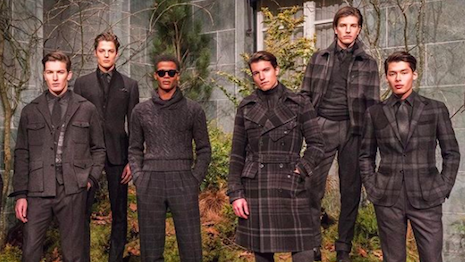 Brands such as Gucci have had major successes in China. Image credit: Gucci
Brands such as Gucci have had major successes in China. Image credit: Gucci
LISBON, Portugal – China is an increasingly enticing target for many Western luxury brands, but they must understand that Chinese culture can change rapidly and be prepared to handle its variations.
Speaking at the Condé Nast International Luxury Conference on April 19, the editorial director of Vogue China explained the particular strategies luxury brands must adopt to be competitive in China. The number one piece of advice she had was that brands need employees who are fluent in Chinese culture.
"You need a team that can respond to the market," said Angelica Cheung, editorial director of Vogue China. "Chinese consumers, especially youths, are highly influenced by popular culture.
"I can go to Europe for two days and I come back and there's all kinds of new trends among young people," she said. "Even I have to catch up to make sure I’m on top of what's happening."
Chinese investments
For many luxury brands, China seems like the ultimate goal.
The country’s wealthy elite population is growing every year and these individuals collectively clamor for luxury goods from outside China.
But operating in China is a difficult task. There are many intricacies that must be followed closely with no room for miscalculation or complacency.
Ms. Cheung emphasized that it is impossible to effectively operate a Chinese branch of a brand from outside the country. Chinese culture morphs quickly and consumers are frequently influenced by ephemeral trends that can rapidly change.
Saint Laurent is working with Farfetch in China. Image credit: Saint Laurent
So brands have two options: either hire and train a trusted team to operate in China who can make autonomous decisions quickly based on what is happening in current Chinese culture or go live in China themselves.
Ms. Cheung spoke at length about how Chinese youth culture lives primarily online, where flash-in-the-pan trends and fads can go through an entire cycle of discovery to popularity to triteness in the matter of just a few days.
"I feel it's very important that the brand be clear about its DNA and what it stands for," Ms. Cheung said. "The downside of social media is that your voice can be drowned in the ocean of noise.
"You need creative ways to speak to the consumer about holding up an image of what you stand for."
Massive growth
2017 saw a massive explosion in global growth of billionaires, with China seeing an average of four new billionaires a week.
This growth is not limited to China alone however, with the entire world seeing 437 new billionaires over the course of 2017 alone. This data comes from Hurun’s annual Global Rich List report, which found that China was increasingly pulling away from its nearest competitors in terms of total wealth (see story).
Luxury brands have taken notice of this trend. For example, Kering Eyewear is hoping to capture the Asian market with a new ecommerce partnership.
Digital campaigns and growth in China led to better-than-expected results for Ralph Lauren. Image credit: Ralph Lauren
JD.com will now be working with Kering Eyewear to host its first official flagship store, touting designs from the group's brands such as Gucci, Saint Laurent and more. The online retailer is a major force in China and should allow Kering's two-year-old eyewear division to flourish (see story).
Luxury brands looking to operate in China need to understand that it is not a move where half measures will suffice. Luxury brands must invest fully in China or risk failing completely.
"My advice has always been create the best possible team in China," Ms. Cheung said. "Train them thoroughly to develop a key understanding of your brand.
"Trust them to make daily judgements without your approval," she said. "If you do not feel you can trust them, change the team to someone you can trust."

